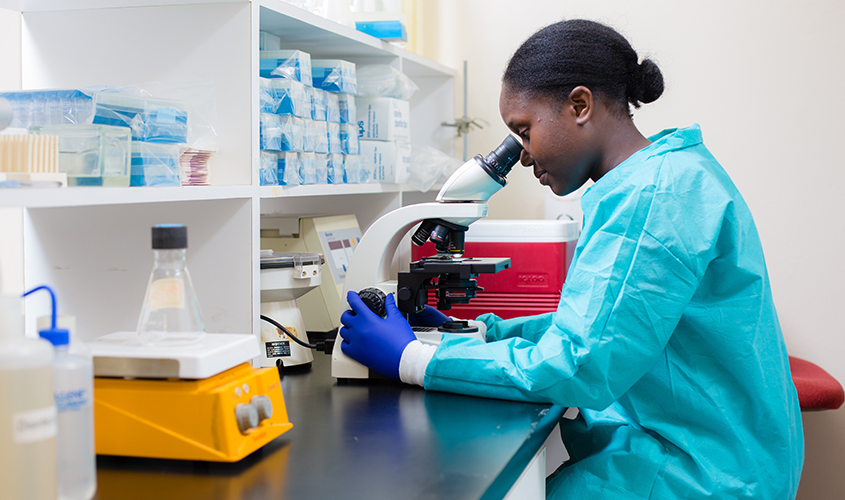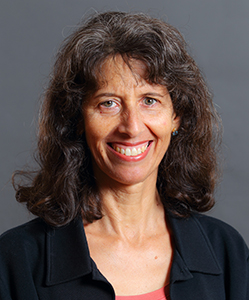Novel NIH-funded master’s degree program offers deep dive into bioethics research

As the world eagerly awaits the results of groundbreaking research and clinical trials during the COVID-19 pandemic, the importance of bioethics—particularly research ethics—has been brought into focus.
A new collaboration between St. George’s University, Universidad Autonoma de Queretaro (UAQ) in Mexico, and Clarkson University in New York, funded by the NIH Fogarty International Center, allows research fellows from low- to middle-income countries (LMIC) to participate in a two-year online Master of Science in Bioethics (MScB) program through 2024. The goal of the program is to increase capacity for bioethics scholarship, research, research ethics review (IRBs), and publication in English- and Spanish-speaking countries of the Caribbean and Latin America.
“We collaboratively designed a bilingual curriculum that offers knowledge, skills training, and opportunities to conduct and publish research, and to become leaders in institutional and national policy, pedagogy, and clinical practice,” said Dr. Cheryl Cox Macpherson, head of bioethics in SGU’s Department of Clinical Skills, and director and principal investigator for the new program. “The diversity of those enrolled enriches the program by facilitating understanding and partnerships across different nations, cultures, disciplines, health systems, and languages.”

Dr. Cheryl Cox-Macpherson
The program is suitable for mid-career professionals looking to increase their understanding of research and bioethics, from doctors and veterinarians to lawyers, pharmacists, and other healthcare professionals. With further development, she envisions delivering the program and creating opportunities for dual degree options at SGU.
“For people who are professionals in health, or on the periphery of healthcare, and have an interest in research ethics or ethics consultation, there is an increasing need for these skills in today’s changing world,” Dr. Macpherson said. “Few physicians are trained to conduct ethics reviews or consultations, and even fewer veterinarians. This is a great opportunity for professionals who are looking to advance their credentials and their knowledge of research ethics.”
Maria de los Angeles Marina Adame Gayosso, the head of the Department for the Promotion of Education in Bioethics of the National Bioethics Commission in Mexico, is part of the charter class that began this fall. In addition to Mexico, the cohort is comprised of English- and Spanish-speaking students from LMICs such as Grenada, Guyana, and Honduras.
“I know what bioethics can do to help transform the lives of people, communities, and countries,” said Ms. Gayoso. “Our continent faces challenges at different levels that need to be analyzed and addressed from a bioethical perspective to generate public policies that are respectful of all forms of life. This program is designed to train leaders and turn students into agents of change for their countries and the region.”
“What we’ve done is really unique in that we are using online software to make it possible to enroll our trainees in both languages at the same time,” added Dr. Macpherson. “They’re talking to each other and working across languages, cultures, and borders.”
The program represents only the latest connection between SGU and the NIH Fogarty International Center, which supports revolutionary research and training in developing countries. As part of the newly launched Caribbean Research Ethics Education initiative (CREEi), SGU, UAQ, and Clarkson received NIH support to establish a one-year certificate program that featured graduate-level online and onsite bioethics courses from 2014 to 2019, which has evolved into the current two-year program. The NIH additionally has provided funding through Dr. Desiree LaBeaud’s laboratory at Stanford to the Windward Islands Research and Education Foundation (WINDREF), a 501(c)(3) research institute located on SGU’s True Blue campus.
The MScB will be supported by the NIH through 2024 and qualified and eligible individuals (must be a national of a regional LMIC) who are interested are invited to email Dr. Macpherson at ccox@sgu.edu.
– Brett Mauser
CREEi is supported by the NIH Fogarty International Center (FIC) Award #R25TW009731.

